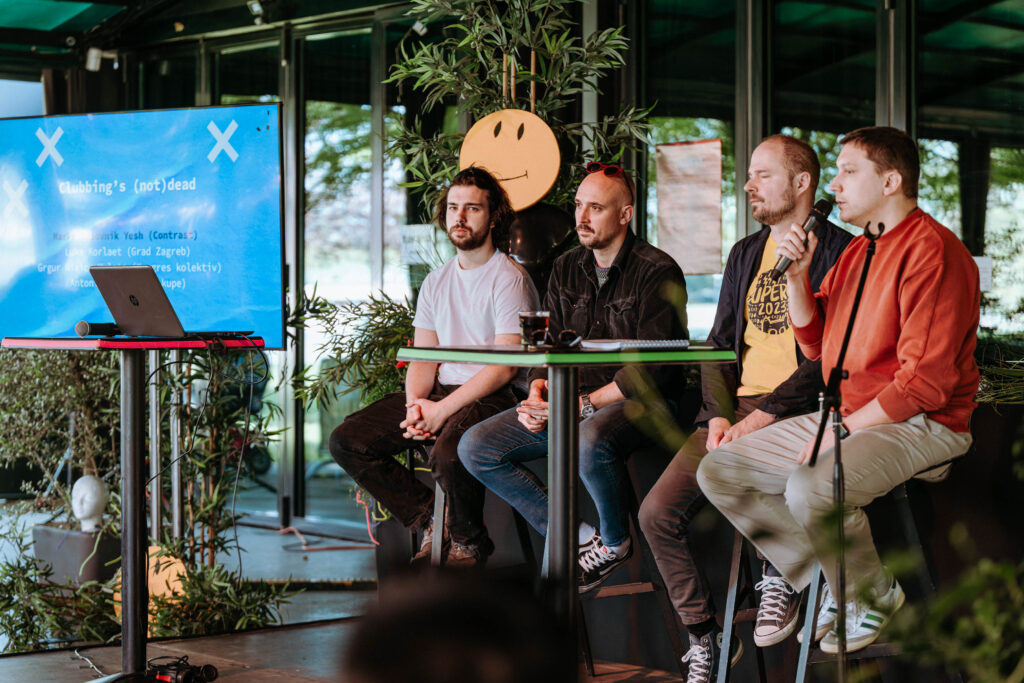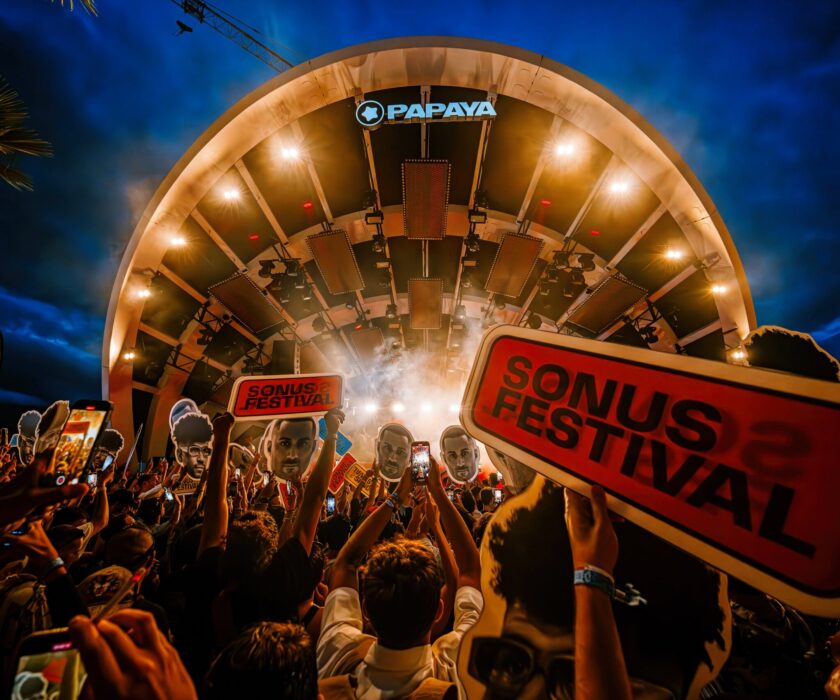The first edition of the Rejvitalizacija Conference on the economy of nightlife was held: In addition to participants from the local scene, the conference was attended by Amsterdam’s Night Mayor Freek Wallagh, and Zagreb’s deputy mayor Luka Korlaet.
On Saturday, September 21, the first edition of the Rejvitalizacija conference on the economy of nightlife was held. On the terrace of Zagreb’s Aquarius Club, lectures, and panels were conducted by local scene stakeholders and politicians, including the night mayor of Amsterdam, Freek Wallagh, and the deputy mayor of Zagreb, Luka Korlaet. The panelists touched on numerous current topics related to nightlife, such as clubbing in Zagreb, Generation Z’s going-out habits, event sponsorships, public tenders, and the importance of maintaining club programs with the support of local authorities.
“I think the greatest success of the conference is that it attracted young and talented people, both those who participated in the organization and those who came to follow the program. The key message is that we need to talk, ask, network, and persevere in the vision of our projects. Every action has a reaction, and I believe that every effort ultimately pays off,” emphasized Tena Šarčević, the conference organizer.

The event began with the results of a recent study on nightclub attendance habits conducted by psychologist Andrijana Mušura. Using the snowball method, the anonymous survey showed that 70% of respondents listen to electronic music in their free time and, when asked how happy they are with their lives on a scale of 1 to 10, the average response was 7, which is above the Croatian average.
“The city will finance clubbing, there is funding“
Following the survey results, the panel “Clubbing’s (not)dead” began, featuring Grgur Nikica Vuleta, founder of the collective Kongres, Antonio Žuža, owner of the club Peti Kupe, and Luka Korlaet, deputy mayor of Zagreb. Moderator Marko Ješovnik Yesh guided the panelists through several topics, including the current state of the local electronic music scene, club program offerings, and city spaces that are neglected but could be used for club development. Vuleta, founder of the collective of 15 young DJs, producers, and music enthusiasts, pointed out that young people generally need more support and space, both from the scene and local authorities. Antonio Žuža shared his experience in building the Peti Kupe club, noting that one must always be prepared for the project to take time to thrive. “Today, it’s necessary to have a space that is not exclusively a nightclub, both financially and conceptually. Young people go to what they like; they don’t attach to the venue but to the organizers and what’s in the hype.” He emphasized that the local scene lacks music production and asked the deputy mayor why the rental periods for public spaces are so short. Luka Korlaet announced a new model and highlighted that the city has increased support for music programs by 1.2 million euros. “The new plan is to have a 10+5 model for renting public spaces – if you’ve paid for 10 years, you’ll get another 5. In Paromlin, 30% of the space will be for culture, including clubbing. Medika is also important, it’s a city-owned space that is in disrepair, but we are in talks for its renovation,” announced the deputy mayor, adding that Zagreb will finance clubbing, as the city budget has the necessary funds.

The conference program continued with discussions on sponsorships and public tenders. Seminars were led by Iva Vukšić, head of content design and communications for Iskon, and Sanja Burlović from AKC Medika. Iva Vukšić explained to the audience how to obtain sponsorships and whom to contact, adding that there is now a big focus on Generation Z audiences. Sanja Burlović listed all public tenders, both state and European, that artists, musicians, and promoters can apply for.
The organization We Move Music, which promotes the export of domestic music, invited scene stakeholders to apply for their tender and explained the organizational process of the SHIP conference. Then, Tena Šarčević, the Rejvitalizacija organizer, shared her experiences from the NightSchool conference with the audience.
Duties and actions of the Night Mayor
The final lecture was marked by Freek Wallagh, night mayor of Amsterdam, the first city to implement the title of night mayor. Journalist Karla Močković asked Wallagh about the significance of his title and the daily (and nightly) tasks he has as a night mayor. Wallagh, a graduate in political science, music enthusiast, and poet, explained how Amsterdam also faced a crisis where clubs were closing due to various crises, leading to the need for a ‘night watch’. “Nightlife is a tool to make the city more livable, and artists are usually the first to leave due to high living costs, but they are the ones who create the scene and events. I am their ‘man on the inside’,” explained the night mayor. Wallagh believes that conversations with public administration should be initiated in a practical direction based on situations from the field. “Local politics is important, every city has its budgets and spaces it can offer. It is important to fight for such spaces and for local authorities to recognize ‘nightlife’ as culture. Also, it’s necessary to avoid seasonality and maintain and push programs throughout the year.” Asked about trends in electronic music in Amsterdam, he concluded that there is no longer any point in debating what is underground and what is mainstream, and that as an organizer, it’s essential to invest in oneself and one’s concepts, find people who share the same vision, and secure partners who provide space and logistics to become a serious organization.

After the conference, the after-party started in the club’s indoor space, featuring the well-known Lithuanian DJ Roe Deers.
“It seems to me that there is real enthusiasm around Rejvitalizacija, and I think this shows that there is a genuine need for something like this, so I hope that the project will continue in this or similar forms,” concluded Tena Šarčević.



